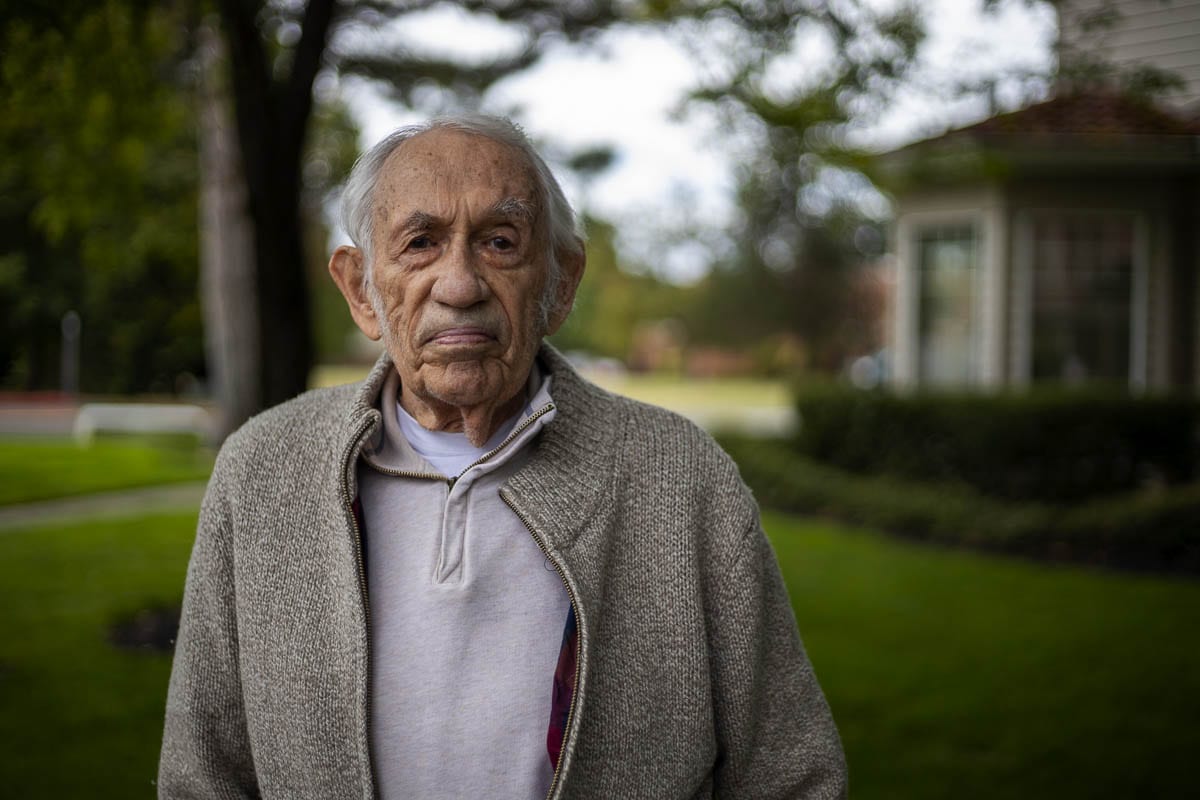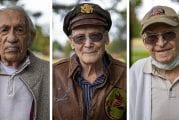Clark County Today shares the first of three interviews with local World War II veterans during Veterans Day week
Chris Brown and Jacob Granneman
ClarkCountyToday.com
CLARK COUNTY — More than 16 million brave Americans served in the US military during World War II. Over 400,000 of them would not return home alive. Another 671,000 were physically injured during the six-year conflict that consumed much of the world.
Many of those who escaped death or injury still returned home with emotional scars that would never truly heal.
Today, the US Dept. of Veterans Affairs estimates fewer than 325,000 of those 16 million men are alive today, with nearly 300 WWII veterans dying each day.
In honor of the 102nd Veterans Day on Wed., Nov. 11, Clark County Today spoke with several World War II vets living in Vancouver at the Van Mall Retirement Community. Over the next three days, we will be bringing you their accounts of the war, and life after they returned home.
While millions served in active duty combat in Europe, the Pacific Ocean, and elsewhere, many others served their country back home by providing support and keeping the machine of war moving smoothly.

Now 94 years old, Stanley Coleman was drafted into the US Navy shortly after graduation in 1945, shortly before the war ended, so he never served in active combat.
“My dad had been an officer in the First World War,” Coleman recalls, “and he went to sea all his life as a merchant marine, and then he got called up in the Second World War.”
Coleman says his short stint in the military was largely spent being moved from base to base, awaiting orders. First from Los Angeles to Memphis, then to New Orleans, and back to the bay area in California.
“One morning we got up, they called us out and we lined up, and then we all got into a bus,” says Coleman.
Without being told where they were headed, the group of 20-25 were taken to the naval air base, where they continued to wait for orders.
Eventually they were stationed to work communications at the naval air base in San Francisco, only a short time before Armistice Day and the end of the war.
Coleman says he thought about seeking a transfer overseas, but sought his father’s advice first who told him he should remain stateside in order to avoid being away from his family for so long.
“‘You’ve experienced that,’ he said, ‘by my being away so much,’” Coleman recalls.
He took his father’s advice and got out of the military, until a few years later when the Navy came calling again.
Coleman never served overseas, but did make a career out of service with the Navy, working primarily out of San Francisco. He married another Navy officer, and raised two children together.
Eventually the family moved to a new military communications base in Colorado Springs, Colorado, says Coleman, where they worked inside of a mountain and eventually retired.
Even though he never served in active combat, Coleman represents the millions of support crew who were vital to assisting the United States and the Allies with winning the conflict.
See series here:
VIDEOS: Local World War II veterans share their experiences





